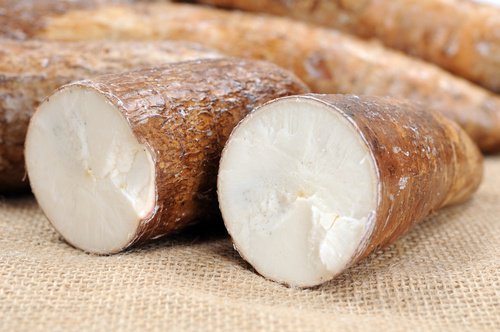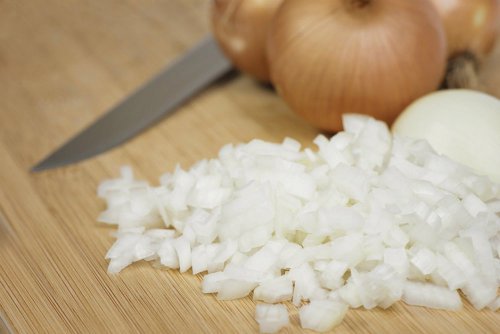Yucca May Help Fight Arthritis

Yucca is a root vegetable, or tuber, that grows in tropical regions of the Americas, Asia, and Africa. Today, you can find it in stores all around the world. In this article, we explain why yucca is recommended as a way to naturally fight arthritis.
Information about yucca
This vegetable looks like a log from the outside, but it comes from a shrub and contains a high content of complex carbohydrates, making it a high-energy food.
Read more here: 9 Amazing Medicinal Properties of Yucca
Due to its texture, flavor, and comparable nutritional value, yucca is often compared to potatoes and sweet potatoes, and these can even be substituted for one another in certain recipes.
How may yucca help fight arthritis?
According to some studies, yucca contains a compound known as saponin that has the power to relieve joint pain related to arthritis, while also slowing the deterioration process.
Another great advantage of yucca is that it doesn’t have those pesky side effects like the digestive problems that often result from taking conventional medications.
Eating yucca every day may reduce the pain, swelling, and stiffness that arthritis causes.
Who should eat yucca?
Yucca is tremendously popular in a lot of countries where it’s readily available. It’s also a lot cheaper than other foods, so it has become a dietary staple in these regions.
Yucca is known for the energy it packs in the flesh of the root, making it an ideal option for children, teens, athletes, and people who perform hard physical labor.
It’s also very easy to digest, and can even be beneficial for people who suffer from digestive disorders like heartburn, stomach ulcers, or gastritis.
How should you prepare it?
It’s possible to consume yucca as a food or even as a supplement:
- If you choose the supplement form, take it for three months, then wait three, and repeat. You can also take yucca supplements during acute arthritis outbreaks.
- If you prefer to eat it with your meals, cook it just as you would any potato. You can try it in omelets, stews, baked on its own, fried, and more.
Importantly, yucca is not only a gluten-free food, but it’s also incorporated into many recipes for people with celiac disease. Yucca flour can be used to bake bread and cakes with the same delicious flavor and texture as regular flour.
Discover: Alleviate Arthritis Symptoms
Yucca rolls
Ingredients:
- 1 1/2 cup of water (300 ml)
- 1 cup of extra virgin olive oil
- 3 eggs
- 2 teaspoons of sea salt (10 g)
- 200 g of cheese
- 500 g of yucca flour
- Optional spices: garlic, paprika, ground pepper, etc.
Preparation
- Preheat the oven to 350 degrees.
- Beat all ingredients together until you form a smooth, homogeneous batter.
- Pour the batter into muffin trays, filling the cups less than half full. Make sure you spray the cups with oil so it doesn’t stick. Silicone molds can also be used and require less oil.
- Bake for 25 minutes at 350 degrees on a low tray in the oven to let them rise easily.
- Eat them while they’re warm.
Other possible beneficial foods for arthritis

The following are additional foods that may help fight the symptoms of arthritis:
- Turmeric: This spice is excellent for treating inflammation and pain.
- Saltwater: It’s rich in minerals that strengthen the bones and joints.
- Broccoli: Fights inflammation, is an antioxidant, and promotes healing. Only cook it long enough to make it soft and never lose the green color, or you’re taking away its beneficial properties.
- Licorice: This herb acts as a natural kind of cortisone.
- Onion: Onions reduce inflammation and also help remove toxins from your kidneys.
- Garlic: It’s a medicinal food for numerous diseases, including arthritis.
- Green tea: This beverage is rich in antioxidants and flavonoids that help reduce inflammation.
All cited sources were thoroughly reviewed by our team to ensure their quality, reliability, currency, and validity. The bibliography of this article was considered reliable and of academic or scientific accuracy.
- Alhambra-Expósito MR, Arjonilla-Sampedro ME, Molina-Puerta MJ, Tenorio-Jiménez C, Manzano-García G, Moreno-Moreno P, et al. Recomendaciones dietéticas en la artritis reumatoide. Revista Española de Nutrición Humana y Dietética 2013; 17 (4): 165-171. Available at: http://maxconn.renhyd.org/index.php/renhyd/article/view/28. Accessed 01/15, 2019.
- Bernal LGB, González LVA, Lagunas LLM, Ramírez JR, Sandoval-Torres S. Caracterización física y nutricional de frutos de yuca (” Yucca mixtecana”). Agrociencia 2018; 52 (3): 347-359. Available at: https://dialnet.unirioja.es/servlet/articulo?codigo=6423183. Accessed 01/15, 2019.
- Yadira Maribel Yumisaca Hidalgo. Determinación de la actividad antiinflamatoria de los flavonoides del extracto de la hoja de yuca (Manihot esculenta). Quito: Universidad Central de Ecuador; 2018. Available at: http://www.dspace.uce.edu.ec/handle/25000/16719. Accessed 01/15, 2019.
This text is provided for informational purposes only and does not replace consultation with a professional. If in doubt, consult your specialist.








